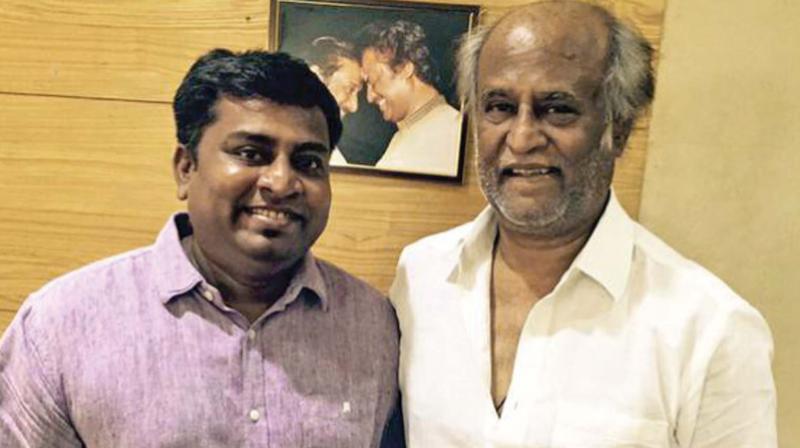The process behind sculpting a film

Chennai 600028 was not only a promising debut for Venkat Prabhu and team, but also marked Praveen KL’s debut in K’town as an editor. The film served as a calling card for him, as he is one of the most sought-after in the profession today.
With over 50 films to his credit, including blockbusters like Mankatha, Madras, Kabali and more, Praveen still remains unfazed.
Editors are the unsung heroes and the backbone of a project. And a lot of hard work happens in an edit suite. Here, the award-winning editor for Saroja, takes us through the process.
TIMING MATTERS
The script or a narration helps me understand the project better and look at the strengths and weakness. I give my feedback to the directors. I also discuss with them on the pattern and give references, if any, so that they can understand my point of view better.
I also have a practice of timing the scripts to their edit length so as to avoid shooting scenes that would be chopped off at a later stage. This helps save money, time and also the dates of artistes. For example, I told director Caarthick Raju of Ullukuthu to drop a song in the first half as it would be redundant for the flow.
SENSE OF OWNERSHIP
My approach for any film is to decide on the edit pattern, after I see the raw footage, unless it was planned and shot to be cut in a preset way. I usually tell my assistants to organise the rushes and also guide them to look for some inspiration or come out with their own versions. I have a bunch of 14 talented assistants. Every film that I work on has one associate and one assistant. I feel, that way they have a sense of ownership and they can manage things better.
WHAT IS TOUGHER?
Usually a teaser is cut way before the first look, and trailers are generally tagged with the audio release date. The trailer or teaser serves as the main element of curiosity for the audience and it makes them decide if they want to watch the film in a theatre. For example, Mankatha’s trailer created huge expectations in terms of business after we released it. So, the pressure is always there, especially for films with big stars. We need to cater to their fan base, create curiosity and at the same time, edit it in a commercial way without revealing much of the story.
I have always felt that it is more difficult to cut a trailer than the film, as we only have a couple of minutes to create an impact.
EDITORS AND PATIENCE GO HAND IN HAND
A lot of things influence editors during the post production of a film. We generally try our best to elevate the script and stay close to the way it was written. Sometimes the way the script was shot may not work and we might have to change the entire structure to create a better film. As an editor, I might end up watching every film more than 40-50 times at various stages, to make sure everything is on track. Patience is a virtue, and as an editor we need to have loads of it as we end up working long hours and odd timings.
AN EDITOR’S INSTINCT
I always believe that the director has the final call for every film I work on. Suggestions will be given at every stage and it is always a healthy discussion. Fortunately, most directors I have worked with have given me the freedom to work on my version of their film. Directors generally believe a lot in editors’ suggestions as they don’t attach themselves too much to the script and look at the film from an audience point of view.
ERRORS AND CORRECTIONS
Most films have corrections until the last minute, these days, as digital era has given everyone the freedom to experiment. I think the Chennai 600028 sequel had the most number of corrections recently! For example, after the demonetisation, I watched the first copy and thought I could add a couple of humourous lines on the new '2000 notes and suggested it to Venkat Prabhu. He liked the idea and we went back to dubbing and mixing again. No film is perfect! We can always tweak and make it better.
ON GETTING RECOGNISED
During my early days, when I used to tell people that I was an editor they would ask, ‘which paper?’ I personally want every reviewer to understand our work and comment on it, whether it is good or bad. But I strongly disagree when reviewers judge our work based on the length of the film. It is slowly improving and is only for the better.
THE UNSUNG HEROES
Editors are now considered the strong pillars of a film. Most producers, directors and actors get into a conversation with us and try to understand our point of view. I must say it has grown leaps and bounds over the years. We are not just people who sit in a dark room and chop hours and hours of footage anymore!

